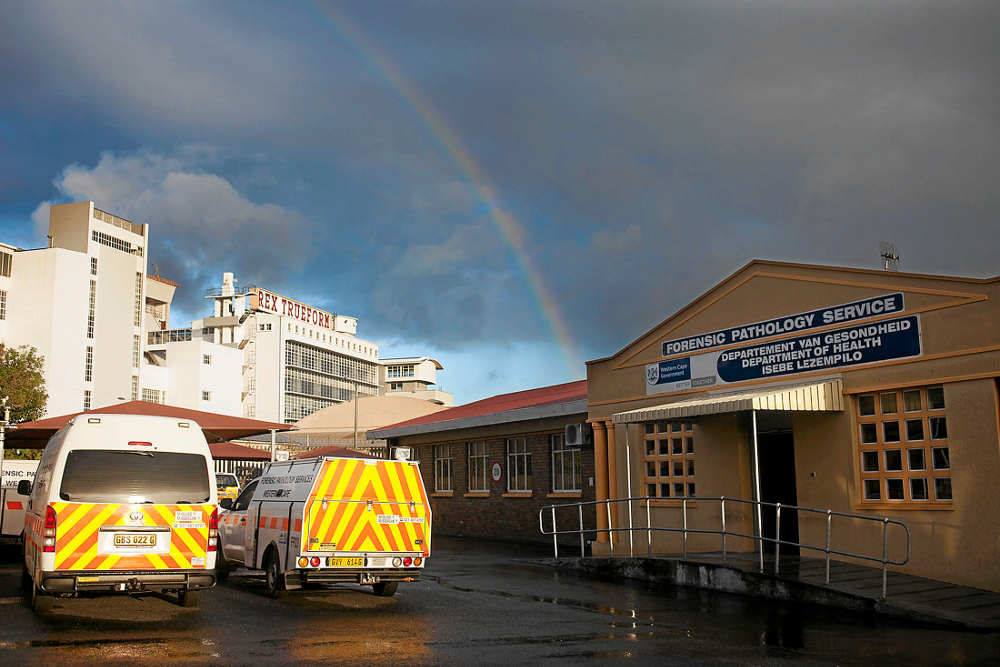The Western Cape Department of Health has assured the Muslim Judicial Council (MJC) that the unwritten policy to prioritise Muslim postmortems still stands. This reassurance was given at a special high level meeting held with senior MJC members, Health MEC Nomafrench Mbombo and top health officials in the department in Cape Town on Monday. The MJC called an urgent meeting with the department after receiving calls from Muslim families in Cape Town who were anxiously waiting for the bodies of deceased, due to delays in finalizing post-mortems.
Speaking to VOC on Monday, the MJC’s second deputy president Shaykh Riad Fataar said the MJC requested the department to rescind its decision to chronologically work through its caseload and give priority to Muslim bodies. But the department said it is plagued by a heavy caseload, is understaffed and under-resourced and cannot commit to a date when further Muslim bodies will be released.
“The department has indicated that prioritising Muslim autopsies will continue but according to the clinical priorities,” said Shaykh Fataar, the chairman of the Muslim Cemetery Board.
Dr Saadiq Kariem, the provincial chief director in general specialist and emergency services, explained the criteria for prioritising Muslim bodies.
“One of the absolutely criteria is medical and legal investigations, such as rape cases and homicide, where the police and courts are involved. Those have to be done. Then there are also issues from a clinical perspective. For example, a body cannot wait for too long before it begins decomposing because then one would lose the trail of evidence which is quite important in these cases,” he explained.
MEC Mbombo assured the MJC that the matter will be raised at provincial legislature on Wednesday to request assistance with increasing staff and equipment at the province’s mortuaries.
“I understand the morgue is backlogged and under significant strain due to the ongoing violence in this community. We understand and acknowledge this but this has been a chronic problem for which the planning and resourcing have been inadequate,” said Shaykh Fataar.
“The Western Cape has been persistently labelled as one of the most violent provinces in the World and yet provincial government remained under-resourced. Alternative solutions must be sort.”
The timeous release of post-mortem examinations of Muslims is an unwritten policy spanning decades. Expedient burial is not a custom in Islam but rather a well-founded religious practice. Delaying the burial is painful to the family and dishonours the deceased.
“Apart from Islam and Judaism, no other religion or cultural belief specifies that bodies should be buried as soon as possible. The department’s previous decision to make all wait in a queue created an inequity for these two religions,” said Shaykh Fataar.
According to international norms, the number of post-mortems done by a pathologist is 350 per year, but in Cape Town, this figure stands at 900 per annum. This gives an indication of the type of service pressure at the Forensic Pathology Services.
Amongst the officials present at the meeting were the Head of the Health Department, Dr Beth Engelbrecht; Head of UCT Forensics Pathology, Professor Lorna Martin; Chief Director General Specialist and Emergency Services, Dr Saadiq Kariem; MJC President Shaykh Irafaan Abrahams, MJC first deputy president, Moulana Abdul Khaliq Allie; Mufti of the MJC, Moulana Tahaa Karaan; Head of General Council (Imaamah) for Mitchell’s Plain and Northern Suburbs, Shaykh Ebrahim Gabriels and Moulana Hassiem Cassiem; member of the Senior Council (Imaarah), Kamaal Karriem; and two members of the MJC Cemetery MANCOM (undertakers), Abdullah Slamang and Yaghya Hartley from the MP Islamic Trust.
The Western Cape Muslim Undertaker’s Forum spokesperson Ebrahim Solomon said their members were not present,
“We as the undertakers, the people that the community come to when there is a janazah, need proper answers. Alhamdullilah, we know strides are being made, but we want to ensure this comes to an end as the community is suffering,” he said.
Meanwhile, all parties concerned will keep a close eye on progress and re-assess the situation on 16 November. VOC






 WhatsApp us
WhatsApp us 

